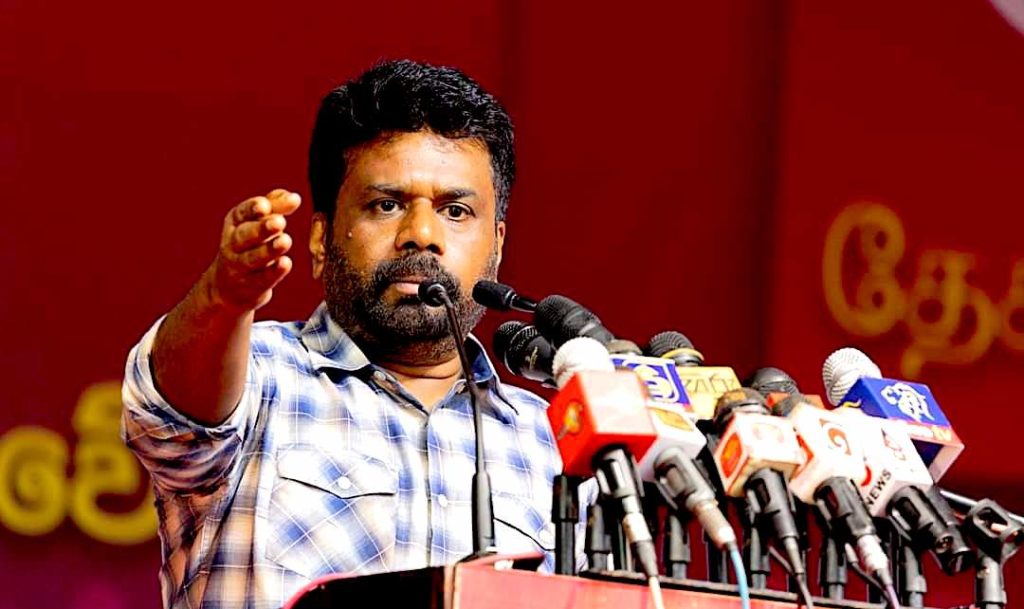Photo courtesy of Counterpoint
The Institute for Health Policy’s (IHP) Sri Lanka Opinion Tracker Survey (SLOTS) MRP provisional estimates of presidential election voting intent in February 2024 show no real changes compared to January. NPP/JVP leader A.K. Dissanayake continues to lead with the support of 53% of all adults followed by SJB leader Sajith Premadasa on 34%, President Ranil Wickremesinghe at 6% (-2) and a generic SLPP candidate at 7% (-1).
These estimates are based on the January 2024 revision of the IHP SLOTS Multilevel Regression and Poststratification (MRP) model. The update is for all adults and uses data from 16,248 interviews conducted from October 2021 to 24 March 2024 including 575 interviews during February 2024. Margins of error are assessed as 1-3% for February.
IHP’s SLOTS MRP methodology first estimates the relationship between a wide variety of characteristics about respondents and their opinions, in this case, “If there was a Presidential Election today, who would you vote for?” in a multilevel statistical model. It then uses a large data file that is calibrated to the national population to predict voting intent in each month since October 2021 according to what the multilevel model says about their probability of voting for various parties (‘post-stratification’) at each point in time.
SLOTS combines interviews from a national sample of adults (ages 18 and over) reached by random digit dialling of mobile numbers, and others coming from a national panel of respondents who were previously recruited through random selection. IHP estimates voting intent using an adaptation of Multilevel Regression and Post-Stratification (MRP), with multiple imputation to account for uncertainties in its modelling, exploiting data from all SLOTS interviews to estimate voting in a particular month.
The February 2024 MRP estimates are based on 16,248 interviews conducted from 1 October 2021-24 March 2024 including 575 interviews conducted in February 2024. All estimates are adjusted to ensure the sample matches the national population with respect to age, sex, ethnicity, socioeconomic status, education, geographical location and voting in the 2019 presidential and 2020 general elections.
